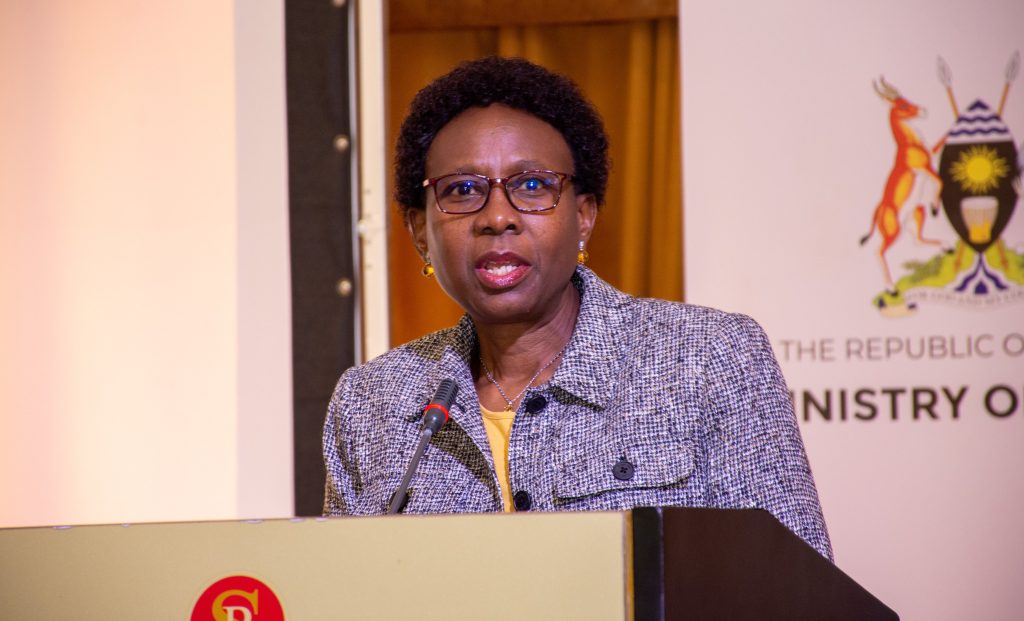The Ugandan Health Ministry has announced that inadequate funding and a limited number of qualified supervisors and hospitals are major barriers to deploying all medical degree holders for internships.
With a government allocation of Shs35 billion for medical interns and Senior House Officers (SHOs) during their 12-month placements, the ministry faces significant challenges.
Funding and Allocation Issues
The allocated Shs35 billion is intended to cover both the deployment and allowance payments for medical interns and SHOs. SHOs, who are experienced doctors undergoing specialized training, help bridge service delivery gaps in hospitals by providing clinical services.
This funding is only enough for 1,500 medical interns and 743 SHOs, yet there are 2,706 eligible interns and 743 SHOs.
Health Minister Dr. Jane Ruth Aceng explained, “This financial year, 2024/25, the Ministry of Health was allocated UGX 35,661,600,000 to cater for both Medical Interns and SHOs. The cost of deploying one intern for one year, including allowances and PAYE tax, totals UGX 15,600,000.”
Each medical intern receives an allowance of Shs1,000,000 per month, with an additional Shs300,000 in PAYE tax, making a total of Shs1,300,000 per month.
SHOs receive similar monthly allowances. For the 743 SHOs over 12 months, Shs11,590,800,000 from the Shs35.6 billion is allocated.
Budget Shortfall and Its Implications
“The funding released last year was Shs46 billion, which included arrears and supplementary funds for shortfalls. This year, only Shs35,661,600,000 has been allocated, a reduction of Shs10,338,400,000,” Dr. Aceng noted.
After accounting for SHOs and continuing interns, only Shs23.4 billion is available for deploying the current interns.
Given the expenditure of Shs15,600,000 per intern per year, the available budget can only support 1,500 interns. Consequently, the ministry can only deploy the 2023 cohort and previous years, totaling 1,435 medical interns.
The remaining 65 positions will prioritize Dental Surgeons (22) and Government-sponsored pharmacists from the 2024 cohort (43).
Challenges and Recommendations
Dr. Aceng pointed out that last year’s deployment of 1,901 interns overwhelmed the system, leading to inadequate supervision and sub-optimal learning experiences.
“Effective medical internship skills transfer relies heavily on hands-on experience to build the confidence of newly graduated interns,” she emphasized.
Prof. Medi Kawuma of the Health Service Commission suggested regulating student enrollment in medical courses and increasing the number of supervisors and training centers.
He highlighted the need for adequate practical training and timely deployment to ensure interns do not forget their skills.
Dr. Aceng recommended that universities communicate the number of potential interns to the Ministry in alignment with the government budgeting cycle and called for expedited completion of the Education for Health Training Policy by the Ministry of Education and Sports.
Infographics
- Total funds for medical interns and SHOs in FY 2023/2024: Shs46 billion
- Total funds for medical interns and SHOs in FY 2024/2025: Shs35.6 billion
- Total funds available for medical interns in FY 2024/2025: Shs23.4 billion
- Total funds available for SHOs in FY 2024/2025: Shs10.3 billion
- Funds for 85 continuing medical interns: Shs670 million
- Total funds required to deploy all interns: Shs42.2 billion
- Additional money required to deploy all interns: Shs18.8 billion
